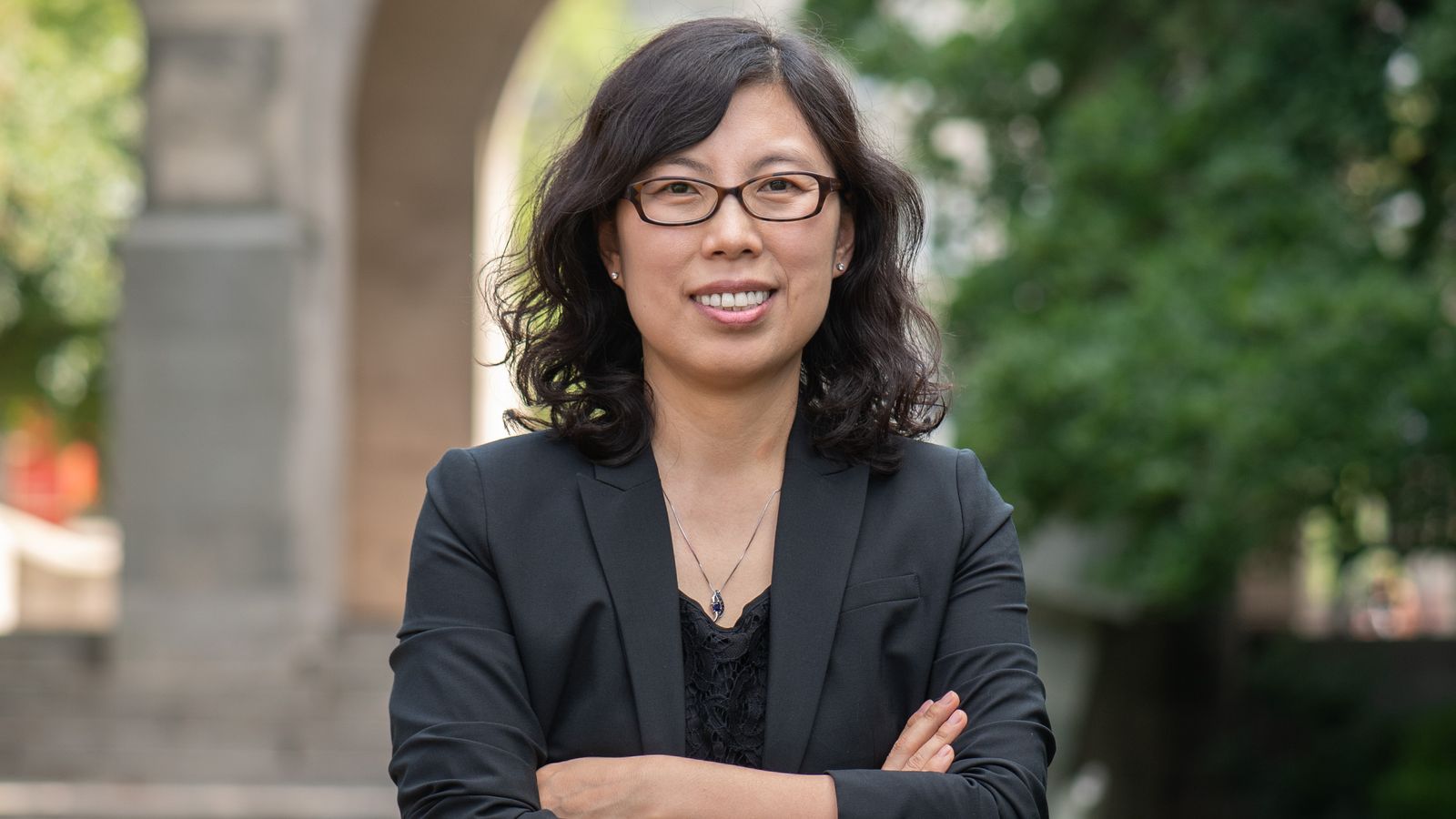Professor Ha: Championing Policy Change

Associate Professor Yoonsook Ha fills a unique niche in the U.S. — uncovering gaps in social policies that impact low-income families.
Yoonsook Ha knew she had a passion for policy research early on. While an undergraduate student studying social welfare in South Korea in the 1990s, she considered pursuing a clinical social work career inspired by volunteer work she did with children and youth in poverty. But a course in social policy set her on a different path.
“I was fascinated by how social policies create a context for people who live in poverty,” says Ha. “Small changes to federal, state, and local policies—affecting resources such as child care subsidies, child support, maternal leave and homeless shelters—make a big difference to the people who need them. My early introduction to the power of policy change set the parameters for my career.”
After receiving her master’s degree in social welfare at Seoul National University in 1999, Ha began exploring universities that would offer a new perspective. She chose to study abroad at the University of Wisconsin-Madison, home to the National Poverty Center (now called the Poverty Solution), earning an MSW and a doctorate in social welfare. She went on to become a faculty member at the University of South Carolina, before joining BUSSW as an assistant professor in 2011.
Mentoring students near and far
Though Ha admits her immigration to the U.S. as a young woman was daunting, she says her professors and colleagues throughout her career provided immeasurable support. “My mentor at the University of Wisconsin-Madison pushed me intellectually in every way possible. He taught me to think critically and helped me to develop research and presentation skills. My mentor at the University of South Carolina guided me on how to navigate the professional world in academia, where to focus my research, and was a major source of support and friendship.”
Today, Ha returns the favor as a research mentor for doctoral social work students at BUSSW, as well as mentoring early career researchers and students nationwide.
Policy action = accessibility
Most of Ha’s research uses quantitative data. She studies large scale federal and state data sets to find barriers to safety-net benefits and ways to eliminate the disparities, and ultimately improve the wellbeing of low-income families. “Not many social workers focus on this area,” she says, likening her work to that of public policy economists.
Over the past decade, her research efforts have been awarded more than $3.3 million—primarily in the area of child care policy. Since 2013, Ha has been a principal investigator with the Massachusetts Department of Early Education and Care, evaluating changes in the child care subsidy policy with a grant from the Office of Planning, Research and Evaluation through the U.S. Department of Health and Human Services.
According to Ha, of 17 million American children eligible for child care subsidies, only 8% use them. “My research has been to uncover the reasons why.” In the past, changes related to employment, family member, or residence had to be reported in person to a Child Care Resource and Referral (CCR&R) agency. In 2014, the introduction of the Child Care Development and Block Grant made significant policy improvements including allowing changes by email or phone rather than in-person visits to CCR&R and providing a three-month grace period for parents seeking new employment.
“These were actually very significant policy changes,” says Ha who is investigating how these improvements affect stability in children’s subsidy use and care arrangement. Most recently, she was also awarded a $1.6 million child care policy research grant to investigate the linkage between child care policies and child developmental outcomes.
Community advocate
On the local level, Ha has expanded her policy work to engage directly with vulnerable populations, especially those not utilizing resources for which they are eligible. She wants to gain a deeper understanding of their needs and barriers to access within a community context–and ideally find practical solutions to remove those barriers. She is currently collaborating on a community-engagement study alongside Dr. Lucy Marcil, a pediatrician with Boston Medical Center (BMC) and co-founder of BMC’s StreetCred program, which provides free, in-office tax services to families eligible for the Earned Income Tax Credit (EITC). “Though the EITC is the most impactful anti-poverty policy, 20 percent of eligible families don’t claim the benefit on their taxes,” says Ha. The pilot study, funded by the Boston University Initiative on Cities, will investigate why by partnering with Epiphany, an independent school for children of economically-disadvantaged families in Boston.
Partnering with government agencies
Ha points to strong connections with government agencies as crucial to wider-reaching policy research success. “It can take a long time to build these relationships with government agencies and gain access to administrative data, so it’s important to forge bonds with the right people,” she says.
One of the most significant and little-known aspects of policy change is that it happens behind the scenes, not at the hands of policy makers, according to Ha. “Once legislation passes, rules and regulations are made at the administrative level. That’s where policy context is shaped for people, so to speak, identifying what is available and to whom. Working closely with state and federal administrators, social work researchers can actually help formulate those policies, not only before they become law, but after.” Proving that social workers truly are policy change agents.